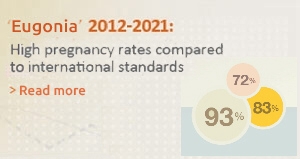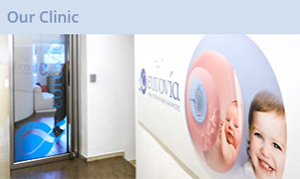Egg freezing is indicated as a fertility preservation method for women who wish to postpone childbearing for the future
- For social reasons
- In threatened premature ovarian failure
- Before chemotherapy - radiation therapy
- In cases of absence of sperm in the semen sample or after biopsy of the partner's testicle on the day of ovulation

At Eugonia, following global scientific developments, we apply the vitrification method for egg freezing with absolute safety and high success rates






























